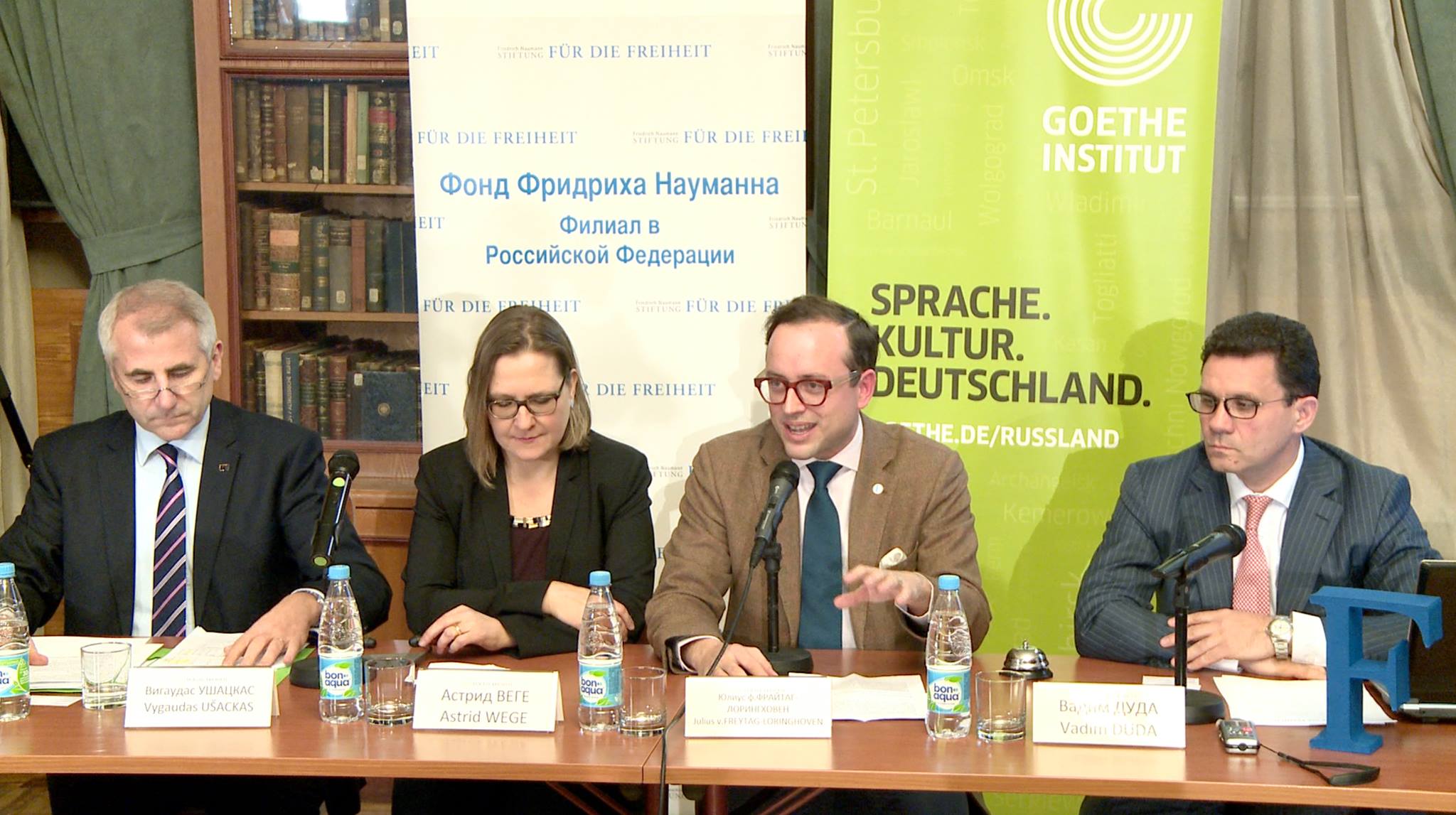Russia in Europe and Europe in Russia

Russia in Europe and Europe in Russia Event
Today, when EU-Russia relations are undergoing a significant crisis, the political rhetoric on both sides is heating up, and finding a consensus seems unreachable, the study of public perceptions of the EU in Russia and Russia in the EU is particularly important. It allows us to look behind the veil of official policy statements and to assess how ordinary people perceive the situation, what they hope for and what they fear.
On 4 December the Moscow office of the Friedrich Naumann Foundation, in cooperation with the EU delegation to Russia, the Goethe Institute, and the Levada Center, held an event entitled “Russia in Europe and Europe in Russia”, which was based on a recent poll by the Levada Center about the perception of the EU in Russia commissioned with the support of the Friedrich Naumann Foundation.
Some interesting results were revealed during this poll. For instance, despite a relatively low percentage of respondents who regard official relations between Russia and the EU as hostile (4%), 14.4% answered “partially agree” to the question “Do you personally feel hostile towards Europe?” and 2.1% of the respondents answered “definitely yes”. Thus, a total of 16.5% of the respondents feel hostility towards Europe in some way. The majority of respondents (79.1%) do not.
A short video from the event:
A part of our survey was related to the attitude of Russians towards Germany and towards Germans. The percentage of respondents who indicated that Germany is hostile towards Russia is high (14.8%) but that is significantly lower than the percentage of respondents who indicated that some other countries were hostile to Russia: the US (78.1%), Ukraine (50.8%), and Lithuania (36.6%). When asked the question of whether they liked Germans, 35.1% of the respondents answered that they “do not particularly like” Germans while 31.1% answered that they do like Germans. Responding to the opposite question, whether they think Germans like Russians, the percentage of negative responses was higher (45.5%) while 19.7% agreed that Germans like Russians.
Following the issues raised by the survey (mistrust towards Europe, a lack of mutual understanding), on 4 December the FNF Office in Moscow invited some Foundation friends and partners to discuss the very multi-faceted and complicated but ever crucial relationship of Russia with its European heritage and neighbours and the future of Russia and the European Union.
The event started with a welcoming speech by the EU Ambassador to the Russian Federation, Mr Vygaudas Ušackas. He commented on the survey results and welcomed all the participants.
Ms Natalia Zorkaya, the head of the Department of Social and Political Studies of the Levada Center, also gave her interpretation of the results.
After that, Dr Ellen Madeker, Chairwoman of the European Group of the German Free Democratic Party (FDP Auslandsgruppe Europa), spoke about the future of the European project in light of current developments, specifically touching upon the refugee issue and the terrorism threat.
These topics stimulated subsequent open debates about the cultural dialogue between Russia and its European neighbours, the future of EU - Russia relations, as well as the future of liberal values and terrorism as a threat to European values.
The poll can be downloaded here in German.
For more information please visit or contact the Moscow office of FNF here.
Photos from the event can be found here: